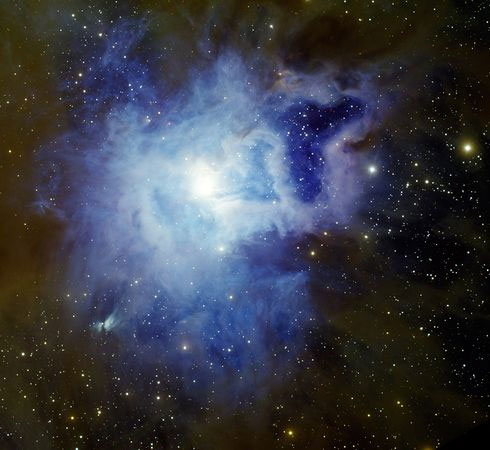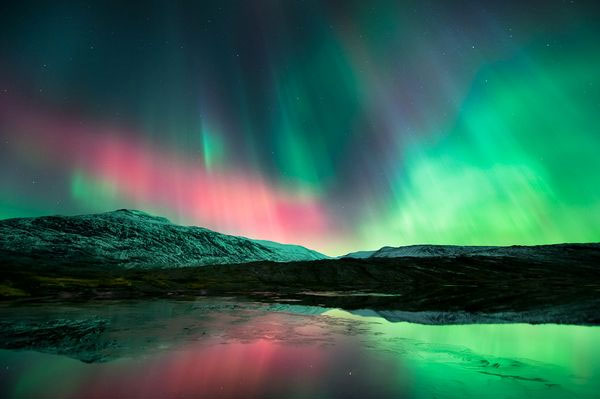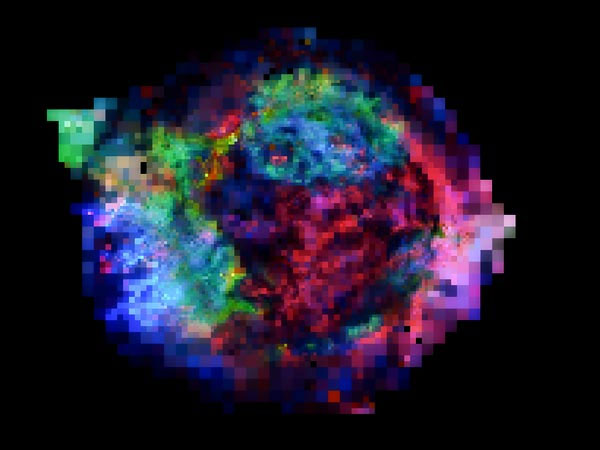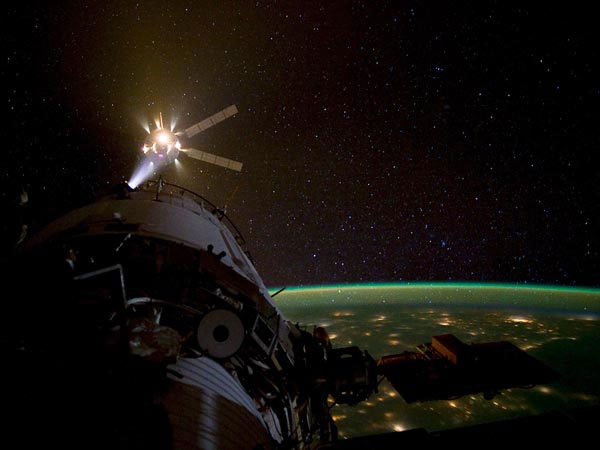Photo of the universe beautiful last week
The Iris Nebula is brilliant, beautiful aurora in Norway are impressive images published in National Geographic magazine last week.

Spring flowers are blooming even in the universe. The photo is an image of the Iris nebula observed and recorded from Kitt Peak National Observatory in Arizona. The name Iris because it looks like a flower. The flower in this universe is known as a reflective nebula. These interstellar dust and gas clouds shine not because of heating but because they reflect light from nearby stars. (Photo: UAA / WIYN / NOAO / NSF).

Beautiful aurora in Norway last year. The appearance of the late October sky was affected by a powerful magnetic storm and created aurora bands across the northern hemisphere, including the bloody red aurora bands visible in the southern United States. (Photo: National Geographic)

Superstar explosion. Looking straight at the new "elemental map" that looks like an image in a classic video game about Cassiopeia A superhuman supernova explosion, shows us the different layers of the original star end life 300 years ago after an explosion. Made up of data from NASA's Chandra X-ray Observatory, the map shows how the supernova explosion somehow pushed material inside out. For example, most pure iron atoms are in remnants - an atom thought to be made near the core of a dying star - is now found at the outer edge of the object. . (Photo: CXC / NASA)

Dazzling light from the spacecraft's propulsion along with countless light from the cities on earth gathered. Photos taken from the International Space Station (ISS) on March 28. Astronaut Don Pettit recorded when the Automatic Transport Equipment Edoardo Amaldi approached the space station to pair. (Photo: NASA / ESA)

Sparkling bright stars lie in the galaxy's spiral arms NGC 6946. New images are published from Kitt Peak National Observatory in Arizona. Over the past century, eight supernova explosions have been discovered in the galaxy's spiral arms, according to Kitt Peak, making NGC 6946 one of the most explosive galaxies. discovered so far. (Photo: NOAO / NSF)

Saturn's largest satellite - Titan seems to be "moving" in space like a bouncing ball. Titan is the only extraterrestrial object that exists on the surface of a stable liquid material - in the case of Titan, is liquid methane lakes. (Photo: Caltech / SSI / NASA)
- Beautiful photos of the universe in the week
- Photo universe impressive week
- Beauty of the universe in the week
- Beautiful photo last week: North Pole of the moon
- Photo of the universe: Pink balloons in the galaxy
- Universe photo: Dance galaxy
- The most beautiful photo of the universe last week
- Photo of the most beautiful universe in 2009
- Beautiful photos taken from space during the week
- Beautiful photos on international space station
- The most outstanding cosmic photos last week
- Photo of the universe: The star is 150 times brighter than the Sun.
 The 11 most unique public toilets in the world
The 11 most unique public toilets in the world Explore the ghost town in Namibia
Explore the ghost town in Namibia Rare historical moments are 'colored', giving us a clearer view of the past
Rare historical moments are 'colored', giving us a clearer view of the past The world famous ghost ship
The world famous ghost ship Photos capture Shanghai's golden age, every frame is as beautiful as a movie
Photos capture Shanghai's golden age, every frame is as beautiful as a movie  Revealing a series of rare photos recording little-known things in history
Revealing a series of rare photos recording little-known things in history  Top 9 Gods in 'Greek Mythology'
Top 9 Gods in 'Greek Mythology'  Photographs of Chinese Women 150 Years Ago
Photographs of Chinese Women 150 Years Ago  Leaked photos of Leonardo da Vinci and Mona Lisa, experts join in to find surprising clues
Leaked photos of Leonardo da Vinci and Mona Lisa, experts join in to find surprising clues  Birds that don't look at each other win prestigious European nature photo award
Birds that don't look at each other win prestigious European nature photo award 